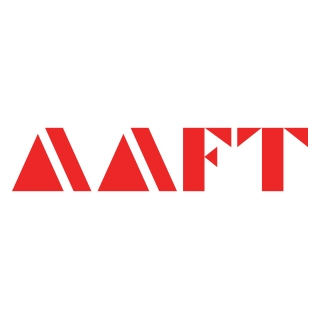What to Expect in a TV Journalism & Communication Course
TV journalism and communication courses allow you to explore different niches, genres, and formats for TV and help you learn the key roles of journalists and media professionals through theoretical and practical knowledge.
Bachelor’s degrees and specialized diplomas in TV journalism are great to kickstart your journey. These courses help you master key skills such as reporting, anchoring, news presentation, fact checking, and handling equipment and software.
This article will take you through the curricula, subjects, types of practical training, and job prospects so you can future-proof your career in journalism.
What To Expect in A TV Journalism and Communication Course
Are you planning to pursue a career in TV journalism, mass communications, or a related field?
Do you want free career counseling?
Ignite Your Ambitions- Seize the Opportunity for a Free Career Counseling Session.
- 30+ Years in Education
- 250+ Faculties
- 30K+ Alumni Network
- 10th in World Ranking
- 1000+ Celebrity
- 120+ Countries Students Enrolled
In that case, it’s important to understand the application process, curriculum, and fee structure, as well as the hands-on learning opportunities and industry insights the course offers.
Let us go over some basics that will help you choose the right course –
1. Prerequisites
The first step towards a communication or TV journalism course is completing your 10+2 with a minimum aggregate score of 50%-55% from a recognized board.
Book Now →
The good news is, there’s no specific stream or subject combination mandatory for you to enroll in these programs.
All you need is to keep an eye on entrance tests such as the CUET, GMCET, AAFT-GEE, and the like. Once you have cleared a national-level or institute-specific test, you can apply for the course or college based on your score.
2. Curriculum Breakdown
Most TV Journalism and Communication courses span 3 years, with diplomas having a shorter duration of 1-2 years.
Do you want free career counseling?
Ignite Your Ambitions- Seize the Opportunity for a Free Career Counseling Session.Read Also: Online vs. Offline Education: Which Offers Better Career Opportunities?
The curriculum is typically divided into semesters, including theoretical subjects, fieldwork, digital knowledge, industry training, and portfolio preparation.
Here’s a detailed break-up of what subjects you will learn and what area you will focus on each year –
Year-1
The first year focuses on creating a foundation through subjects like –
- Principles of communication
- Fundamentals of TV journalism
- Basics of camera handling, lighting, and photography
Over the two semesters, you will explore areas that are integral to journalism and communication, such as –
- Desktop publishing
- News reporting and editing
- Conducting interviews
- Use of online tools and social media for digital communication
- Basics of sound recording
Year-2
The second year is all about strengthening your skills, introducing you to the core areas of TV journalism, and getting to know interdisciplinary subjects.
Some of the key subjects this year will be –
- Understanding different formats for TV and OTT
- Basics of advertising and creative copywriting
- Video editing
- Writing and producing for TV
- Understanding cinema
- Public Relations
Year-3
The third and final year is the most crucial time in the course; this is when you will get industry exposure, start networking, and work towards building a portfolio.
The 5th semester focuses on interdisciplinary subjects, including event management, while also covering important broadcasting laws, journalistic ethics, and writing and producing for advertisements, films, and documentaries.
The 6th and concluding semester is dedicated to internships, preparing project reports, creating a showreel, and building a personal brand.
3. Course Fee
Course fees typically vary based on duration, specialization, institute, internship opportunities, faculty expertise, infrastructure, and placement options.
Bachelor’s degrees in journalism and communication courses can cost between ₹25,000 – ₹1,00,000 in Government institutes and between ₹3,00,000 – ₹12,00,000 in private colleges.
Diplomas, on the other hand, are more affordable, costing between ₹10,000 – ₹50,000 in Government colleges, and ₹1,00,000 – ₹5,00,000 in private ones.
4. Skills You Will Master in a TV Journalism And Communication Course
Read Also: Top 5 Careers in Radio Production & Hosting: Your Voice, Your Brand
A major part of your degree or diploma course is going to be focused on skill development, hands-on projects, and learning newer techniques and digital tools.
Here are some of the key skills you’ll develop through the course –
- Technical Skills
The technical skills you will learn include operating cameras and other equipment, getting familiar with the nuances of interviewing different people, news gathering, writing, and editing.
- Research and Analytical Skills
Research and analytical skills are critical for collecting, compiling, and articulating news pieces, fact-checking, and disseminating information cohesively.
These skills come in handy when studying different formats and genres for OTT or TV.
- Digital Proficiency
TV journalism, communication, and other similar courses stress on developing digital skills relevant to the current industry standards.
This includes mastering video editing software like Adobe Premiere Pro, awareness of SEO and SEM, and understanding social media marketing, Mobile journalism, and Content Management Systems.
- Presentation and Anchoring
TV journalists must know how to properly present a news story, focus on facts, avoid sensationalisation, and host panel discussions and talk shows.
You will explore different methods and formats of presenting news, engaging with the audience, and providing credible updates and their sources to help build trust.
- Communication Skills
Journalism is all about communication. You will be forming professional relationships, interviewing people, and reporting on sensitive events – all of which require excellent skills to convey your thoughts effectively without hurting sentiments.
The curricula focus on trauma-informed reporting, adapting communication styles according to the situation, and enabling clear communication.
5. Practical Trainings
Hands-on training is an important part of any journalism course. This includes field training, industry exposure, internship opportunities, expert sessions, workshops, and corporate events.
Make sure the course you are opting for includes –
- Mandatory internship
- Project and report presentation
- Field studies
- Navigating a studio setup
Courses can additionally provide opportunities for specializations, extra credit certificates, and exchange programs that you can benefit from.
6. Understanding The Challenges in Journalism Today
With an impending climate crisis and geopolitical turmoil around the world, ethical and sensible journalism is more important than ever in 2025.
Your TV journalism and communication courses are designed to help you understand the challenges in the industry and learn how to tackle various obstacles to overcome these –
- Misinformation
According to a 2024 Reuters report, over 50% Indians trust social media as their source of news. This often exposes them to fake news and rapidly spreading misinformation, especially during times of crisis.
As a journalist, you will learn how to fact-check news, verify sources, and help the public stay informed.
- Safety and security
As an aspiring journalist, you must understand the risks involved in reporting. This ranges from a threat of physical injury in conflict zones to doxxing and online harassment, especially targeted at women and professionals from marginalized communities.
Read Also: Podcast Power: The Future of Audio Storytelling and Radio Jockeying
A professional course will teach you risk management, safety protocols, and help you get familiar with the legal recourse and mental health support that you might need while navigating the realm.
- Changing technology
With a dynamic change in technology and the integration of AI, media professionals have to adopt an audience-centric approach that includes studying the digital behavior of consumers and making data-driven decisions.
You need to understand the trends, be familiar with social media and mobile-first news, and know how to ethically use the emerging digital tools to make news more effective.
- Information overload
The Internet presents a whirlpool of information every day, which can be overwhelming and exhausting for audiences.
News and media professionals have to carefully select the news and information they want to convey, provide credible sources, and help categorize news stories based on the audience’s preferences.
- Ethical concerns
Maintaining the balance between providing information and ensuring privacy is a key challenge for journalists.
Navigating ethical concerns related to privacy, use of AI, and reporting on sensitive events requires excellent critical thinking, rationale, and problem-solving skills.
Career Prospects After Graduation – Jobs in Journalism and Related Fields
As more people shift towards independent media, the demand for young journalists will likely grow, and new freelance opportunities will emerge.
While many journalists and media professionals take a few years to establish themselves, there are well-paid jobs for freshers that you can look into.
Here are some of the most sought-after jobs in the field in 2025 –
Read Also: The Future of Learning: How Technology is Shaping Education
| Job Title | Yearly Salary in INR (₹) |
| News Reporter | 3,00,000 – 5,00,000 |
| Copywriter | 2,50,000 – 3,60,000 |
| Social Media Manager | 3,00,000 – 3,50,000 |
| News Anchor | 2,60,000 – 5,00,000 |
| Multimedia Journalist | 2,40,000 – 5,00,000 |
| Content Editor | 3,00,000 – 4,00,000 |
| Public Relations Specialist | 3,00,000 – 6,00,000 |
Final Thoughts
While social media is a primary source for news for many people in the country, television news is not going anywhere anytime soon.
TV journalism, however, has moved on beyond the prime time news and traditional talk shows. Modern news presentation is all about grasping what the audience wants and delivering the facts without sensationalizing them.
If you, too, are looking forward to making a thriving career in news media, start by enrolling in a BJMC or TV journalism and communication course. These will teach you everything that you need to know about the field and the industry, and help you overcome any professional challenges.
Join the AAFT School of Journalism and Mass Communication to access state-of-the-art infrastructure and learn from highly experienced faculty members.
Read Also: Navigate the Digital Media Landscape in 2025
Key Takeaways
Journalism courses are holistic and multidisciplinary. They will equip you with the knowledge of the fundamentals and principles of journalism, and refine your technical skills, including software knowledge, equipment handling, writing and producing for TV, reporting and interviewing, and research and analytical skills.
With a formal TV journalism and communication course, you can explore related fields like PR, digital marketing, advertising, and copywriting, and embark on a successful professional journey.
FAQs
What courses are best for TV Journalism?
If you are interested in TV journalism, some of the best courses include –
1. Bachelor of Journalism and Mass Communication
2. B.A. in Mass Media
3. Diploma in Broadcast Journalism
4. PG Diploma in Journalism and Communication
What subjects does a TV Journalism and Communication course cover?
The key subjects in a TV journalism course include broadcast journalism, writing and producing for TV and OTT, desktop publishing, camera and equipment handling, reporting, copywriting, basics of PR and advertising, understanding different formats, broadcasting regulations, and journalistic ethics.
What are the eligibility criteria for a TV Journalism and Communication course?
For undergraduate courses, you must complete 10+2 with a minimum of 50%-55% score.
For postgraduate courses, you need to have a minimum of 3 3-year college degree (10+2+3) in any relevant field.
What are the career opportunities for TV journalism and communication graduates?
There are plenty of jobs that you can apply for after completing a course in TV journalism and communication. These include a news reporter, an editor, a proofreader, a copywriter, a news anchor, a TV correspondent, a social media manager, and many more.

AAFT has been providing the world with limitless creativity and expression since 1993! Through a dynamic and industry-driven curriculum, AAFT provides engaging and captivating articles to persuasive blogs and empowers its readers to explore diverse avenues of creative media education-related content.






